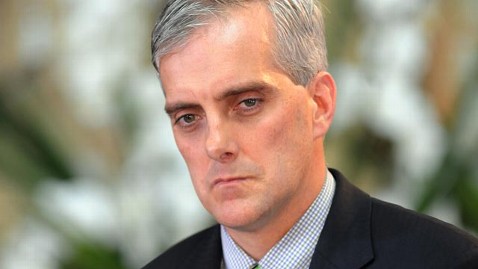
(Larry Downing/Reuters)
“The law already requires licensed gun dealers to run background checks, and over the last 14 years that’s kept 1.5 million of the wrong people from getting their hands on a gun. But it’s hard to enforce that law when as many as 40 percent of all gun purchases are conducted without a background check.”
— President Obama, remarks on gun violence, Jan. 16, 2013
“Studies estimate that nearly 40 percent of all gun sales are made by private sellers who are exempt from this requirement.”
— “Now Is the Time: The president’s plan to protect our children and our communities by reducing gun violence,” released Jan. 16
Earlier this week, we gave this claim a “verdict pending.” We said we faced a bit of a conundrum because the 40 percent statistic was based on a single, relatively small survey of 251 people from nearly two decades ago — but that foes of gun control had made it difficult for further research to be conducted.
We also gave kudos to Vice President Biden for acknowledging that the statistic might not be accurate. So we said we would be watching carefully for how the statistic would be used by gun-control advocates in the future.
We also noted that the microdata used in the original survey could be accessed by researchers. A pair of readers, including John R. Lott Jr. (a noted skeptic of gun restrictions) downloaded the data and presented us with an Excel analysis to argue that the words used by the President and the White House—“gun purchases” and “gun sales” — were inaccurate. That’s because the original report on the survey, from which the statistic is derived, referred to “gun acquisitions” and “transactions” — much broader categories of data.
So we went back to Jens Ludwig, one of the original researchers. He patiently reran his data and explained how he and his colleague, Philip Cook, had reached their conclusions. We won’t get into the weeds of the discussion, but Lott and Ludwig looked at the data in different ways.
Part of the difference was that Ludwig and Cook looked across a variety of different answers in order to spot inconsistencies, rather than immediately assume the gun had been purchased from a licensed dealer, also known as the primary market. “Our approach with the rest of the cases (don’t know source of gun, refused to report source of gun) was to be conservative in estimating what fraction of sales are in the primary market,” Ludwig said.
Still, the data as presented in Ludwig and Cook’s 1996 report on the survey (see Table 3.14) did not give us enough information to test whether the president’s use of the words “gun purchases” was accurate. So Ludwig examined the data yet again at our request and came up with the following results:
Percent of Secondary (“off the books”) market purchases
Cash purchase from gun, hardware or department store, from pawnshop, or from seller at gun show, flea market or military, or through mail that respondent says “yes” was FFL [federally licensed dealer]: 22 percent
Add cash purchase from seller at gun show, flea market or military, or though the mail that respondent says “probably was/think so:” 20 percent
Add cash purchases, trades with family, friends/acquaintance that respondent says are or probably are FFL: 14 percent
In other words, rather than being 30 to 40 percent (the original estimate of the range) or “up to 40 percent” (Obama’s words), gun purchases without background checks amounted to 14 to 22 percent. And since the survey sample is so small, that means the results have a survey caveat: plus or minus six percentage points.
Moreover, as we noted before, the survey was taken in late 1994, eight months after the Brady law went into effect, and the questions were asked about gun purchases in the previous two years. So some of the answers concerned gun purchases that took place in a pre-Brady environment.
Ludwig noted that “if you look at where gun criminals obtained their guns (as indicated from surveys of people in prison or arrestees detained in jail), people have typically found that 80-90 percent of that population get their guns in the secondary market.” We referenced some of that data in our earlier column, and gun-control advocates might argue that it bolsters the need for universal background checks. But that is not the statistic used by Obama.
We can understand why the president might want to use a word like “purchases” rather than “transactions.” And certainly there is a pressing need for additional and up-to-date research on gun purchases in the secondary market. But that is no excuse for the president’s language, especially because the survey data is already nearly two decades old. (The White House declined to comment.)
So we are changing our ruling in this matter from “Verdict Pending” to Two Pinocchios.
Two Pinocchios

(About our rating scale)
Check out our candidate Pinocchio Tracker
Follow The Fact Checker on Twitter and friend us on Facebook
.










